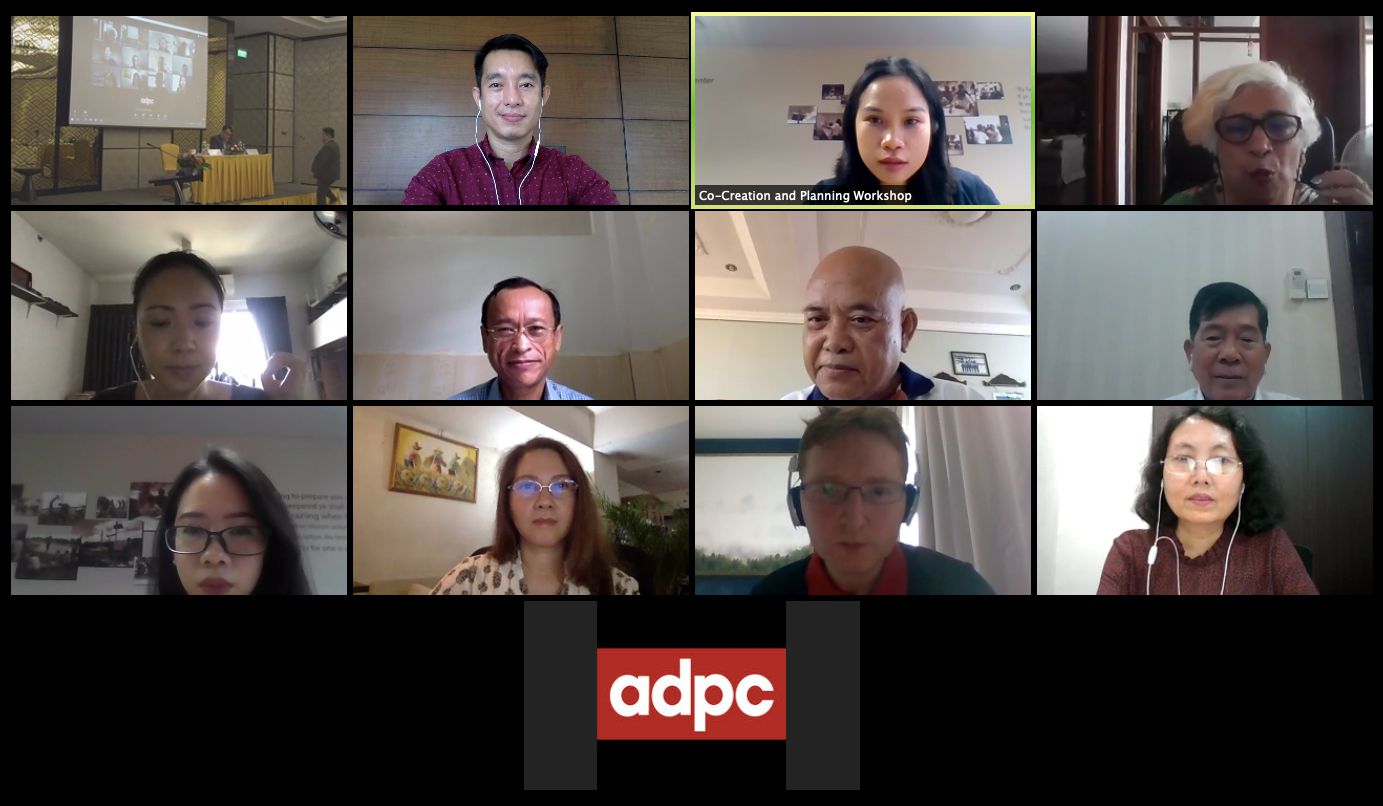The private sector continues to support the efforts of the Philippine Government in the fight against the coronavirus disease 2019 (COVID-19) pandemic. This message was conveyed at the Co-Creation and Planning Workshop for Strengthening Multi-Stakeholder Cooperation for Disaster Preparedness and Response held in Vientiane, Lao PDR on 30 July 2020.
Speaking from the Philippines via Zoom platform, Ms. Veronica Gabaldon, Executive Director of the Philippine Disaster Resilience Foundation (PDRF), reported on various initiatives of the private sector in line with strengthening the country’s COVID-19 preparedness and response. She highlighted the importance of working hand-in-hand with various stakeholders in view of ensuring the health and safety of local communities
in the face of health- and climate-related risks. Aside from the COVID-19 pandemic, the Philippines also faces other threats brought about by the rainy season. The country is visited by an average of 20 typhoons every year.
As part of the Philippine Preparedness Partnership (PHILPREP), PDRF collaborates with its partners – Office of Civil Defense (OCD) and Center for Disaster Preparedness (CDP) – on three main outcomes towards COVID-19 preparedness and response. First, PHILPREP provides free online sessions on Mental Health Psychological Support Services (MHPSS) intended for healthcare workers, disaster managers, front liners, and local community members. Second, it develops and disseminates key messages to promote measures and encourage behaviors that foster safety and wellness amid the COVID-19 pandemic. Third, it documents good practices and lessons learned in the fight against COVID-19 as contribution to the development of a National Action Plan against pandemics.
 Ms. Veronica Gabaldon shares the experience of PDRF in working with the
Ms. Veronica Gabaldon shares the experience of PDRF in working with the
government and civil society in providing assistance to local communities.
Ms. Gabaldon shared that in order to ensure effective disaster preparedness and response efforts, there must be platforms and mechanisms for multi-stakeholder coordination and engagement. Aside from collaborating with its corporate partners, PDRF also utilizes various networks in order to complement and supplement its own resources thereby broadening the reach and deepening the impact of its development initiatives.
As regards COVID-19, PDRF embarks on three main activities – Project Kaapagay, Project Ugnayan, and Project Pagasa. It mobilizes resources from internal and external sources to sustain its operations. More information about PDRF and its various initiatives on COVID- 19 may be found here: https://www.pdrf.org/.
Project Kaagapay is a fundraising drive seeking to provide life-saving personal protective equipment (PPE), ventilators, and test kits intended to augment the resources for the healthcare sector. Raising more than USD 2 million in cash and in-kind donations, over 200,000 PPE sets have been distributed to various hospitals and medical centers in the Philippines.
Meanwhile, Project Ugnayan is an initiative that provided food assistance to low-income families during the lockdown imposed to prevent the spread of COVID-19. It extended unconditional emergency cash transfers to economically vulnerable families affected by the enhanced community quarantine (ECQ) in order to help address their food security needs. More than 1.5 million families were given grocery vouchers.
Finally, Project Pagasa strengthens the capacity of healthcare workers through capacity building activities related to pandemic preparedness and response. It utilized the training of trainer (TOT) mode to quickly build a cadre of competent instructors who are envisioned to teach the material to other healthcare practitioners.

Workshop participants from various organizations located outside of Lao PDR listen intently to the sector presentations via Zoom online platform.
Among the key areas for strengthening the overall disaster risk governance discussed at the event are the active engagement across various sectors and the improved capacity of government institutions and relevant stakeholders at national, sub-national, and local levels. Moreover, the overall strategic direction and priority actions to strengthen multisectoral cooperation related to locally-led actions on disaster preparedness and response was also tackled.
The workshop was organized by the Asian Disaster Preparedness Center (ADPC) and the Ministry of Labour and Social Welfare (MoLSW) of Lao PDR, with support from the Bill and Melinda Gates Foundation (BMGF). The event was chaired by Mr. Hans Guttman (Executive Director, ADPC) and Mr. Vilayphong Sisomvan (Director General of the Department of Social Welfare, MoLSW, Lao PDR). Like Ms. Gabaldon, the other speakers
were from countries where the Asian Preparedness Partnership (APP) is present.
The APP program is being implemented in Cambodia, Myanmar, Nepal, Pakistan, Philippines, and Sri Lanka. In the Philippines, PHILPREP is the national chapter of the APP. As a tripartite partnership and a multi-stakeholder platform on disaster risk reduction and management
(DRRM), PHILPREP is comprised of OCD representing the government, CDP for civil society, and PDRF for the private sector. More information about the APP program may be found here: https://app.adpc.net/.